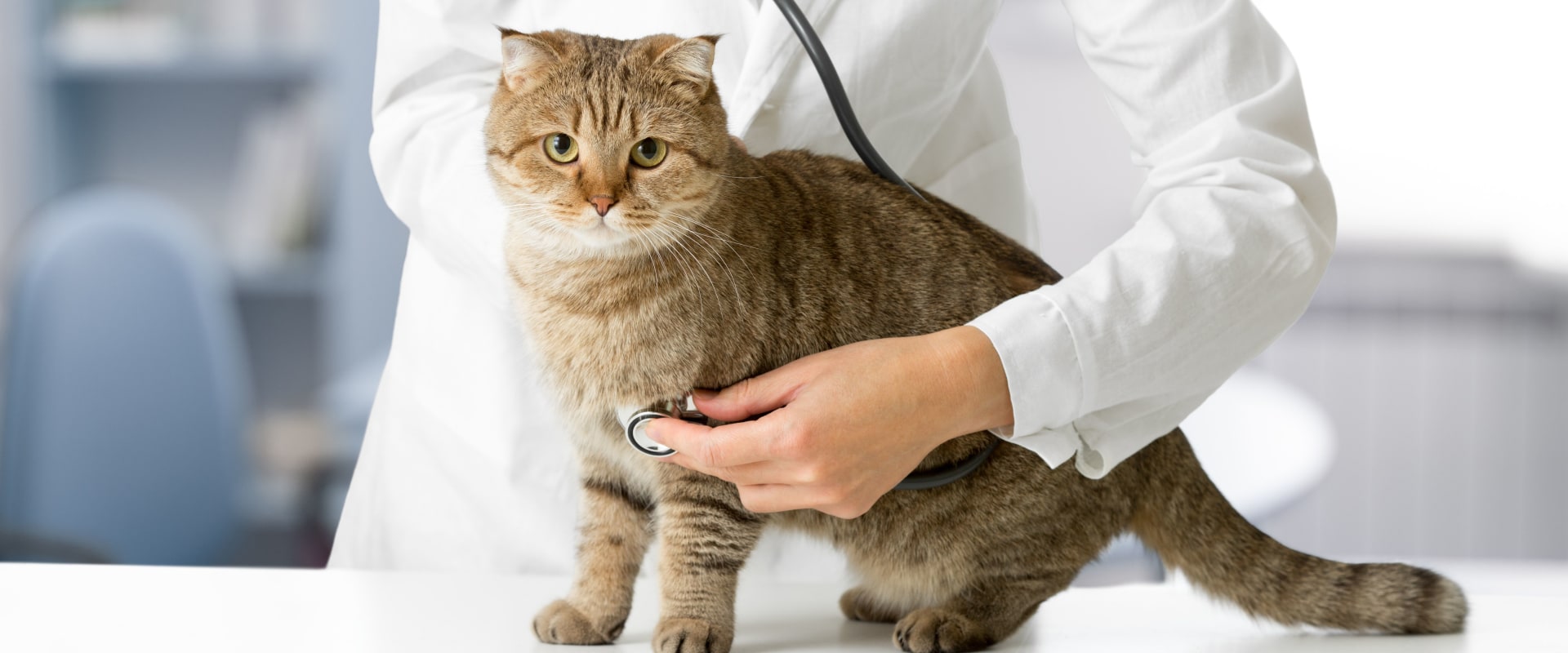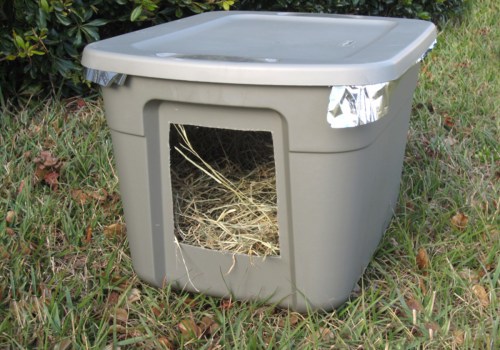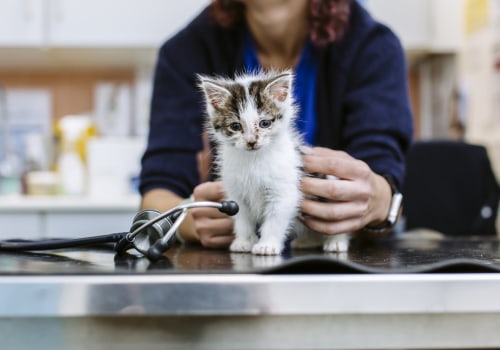Caring for a cat requires not only making sure they have the best food, toys, and litter, but also regular veterinary care. Veterinary tests and procedures can help cats stay healthy and catch any potential issues before they become larger problems. But what types of tests and procedures do cats need?In this article, we'll discuss the different types of veterinary tests and procedures available for cats. We'll also cover why they're important and provide tips to help you prepare for your pet's visit to the vet.
Vaccinations:
Vaccinations are an important part of preventive healthcare for cats.Vaccines protect cats from a variety of illnesses, including feline panleukopenia, feline calicivirus, and feline herpes virus. Depending on the cat's age and lifestyle, additional vaccines may be recommended, such as rabies or feline leukemia. Regular boosters are also important for keeping cats up-to-date on vaccinations.
Diagnostics: Diagnostic tests are used to identify illnesses in cats.
Common diagnostic tests include blood tests, fecal exams, urinalysis, radiographs (x-rays), and ultrasound. These tests can help veterinarians diagnose diseases like diabetes, kidney disease, urinary tract infections, heart disease, intestinal parasites, and more. Additionally, diagnostics can be used to evaluate the effectiveness of treatments for existing conditions.
Treatments: Depending on the diagnosis, a variety of treatments may be recommended for cats with health issues. Common treatments include medications, supplements, and special diets.
Medications may be prescribed to treat infections or other conditions. Supplements may be recommended to improve overall health or to address specific nutritional deficiencies. Special diets may be prescribed to treat or manage certain conditions, such as diabetes or kidney disease.
Surgeries: In some cases, surgery may be recommended for cats with medical conditions. Spay/neuter surgeries are commonly performed to prevent unwanted litters and can also help reduce the risk of certain diseases.
Orthopedic procedures may also be recommended to treat conditions such as hip dysplasia or luxating patellas. Other surgeries may be used to remove tumors or repair broken bones. Regular veterinary care is essential for keeping cats healthy. Vaccines are important for protecting cats from illnesses, but there are many other tests and procedures that can help diagnose and treat cats. With the right preventive care and prompt attention to any health issues that arise, cats can live long and healthy lives.
Vaccinations
Vaccinations are a critical part of preventive healthcare for cats.Vaccines help protect cats from a variety of illnesses, including rabies, feline distemper, feline herpes virus, calicivirus, and feline leukemia virus. Vaccines help cats build up immunity to these illnesses, which can prevent them from becoming seriously ill or even dying from the disease. The type of vaccination your cat needs will depend on their age, lifestyle, and health history. Your veterinarian will be able to advise you on the best vaccine for your cat.
Generally, kittens receive a series of vaccinations when they are between 8 and 16 weeks old. Kittens should also receive a booster 1 year after their initial vaccines. Adult cats should receive annual vaccines to help protect them from disease. Your veterinarian can also advise you on other vaccines your cat may need based on their lifestyle and risk factors for disease.
For example, if your cat goes outdoors often, they may need additional vaccines for diseases such as feline immunodeficiency virus (FIV).
It's important to keep your cat up-to-date on their vaccinations in order to protect them from potentially deadly illnesses.
Diagnostics
In order to identify illnesses in cats, veterinarians use a variety of diagnostic tests. These tests include physical exams, blood tests, urine tests, imaging tests, and biopsies.Physical Exams
During a physical exam, the veterinarian will inspect your cat for any signs of illness or injury. The vet may also listen to your cat's heart and lungs with a stethoscope.Blood TestsBlood tests can detect problems with your cat's organs, such as the kidneys and liver. They can also reveal any infections, anemia, or other conditions.
Urine Tests
Urine tests are used to check for urinary tract infections and urinary stones. Urine tests can also show how well the kidneys are functioning.Imaging TestsImaging tests such as X-rays, ultrasound, and CT scans can help diagnose a variety of conditions in cats. These tests are used to detect tumors, heart problems, and foreign objects in the digestive tract.
Biopsy
In some cases, a biopsy may be necessary to diagnose a condition. This is when a sample of tissue is taken from the affected area and examined under a microscope.Treatments
When a cat is ill, there are a variety of treatments that may be recommended by a veterinarian. Depending on the diagnosis, these treatments can range from medication to surgery. Here are some of the most common treatments for cats:MedicationMedication is the most common treatment for cats, and it can be used to treat a wide variety of ailments, including infections, allergies, and other medical issues. Common medications used to treat cats include antibiotics, anti-inflammatory drugs, pain relievers, and anti-fungal medications.Surgery
Surgery is sometimes necessary to treat certain medical conditions in cats.It can be used to remove tumors or correct birth defects. It can also be used to address injuries or illnesses that cannot be managed with medication alone.
Dental Care
Dental care is an important part of preventive healthcare for cats. Regular dental cleanings and checkups are essential for keeping cats' teeth and gums healthy. If dental disease is present, more advanced procedures such as extractions may be necessary.Nutritional Support
Nutritional support is often necessary for cats with medical conditions such as kidney disease or diabetes.Special diets can help manage these conditions and improve overall health and quality of life.
Alternative Therapies
Alternative therapies such as acupuncture and chiropractic care can be used to treat cats with certain medical conditions. These therapies can help reduce pain, improve mobility, and boost overall wellbeing.Surgeries
When it comes to treating cats, there are a variety of surgeries that may be recommended by a veterinarian. Some of the most common types of surgeries for cats include:Spaying/Neutering:Spaying and neutering are the most common surgical procedures performed on cats. These procedures involve the removal of the reproductive organs and are typically done for population control and to prevent certain types of behavior in cats.Spaying and neutering can also help reduce the risk of certain types of cancers.
Declawing:
Declawing is a surgical procedure that involves the removal of a cat's claws. This procedure is typically done to prevent cats from damaging furniture and other household items. It is important to note that declawing should only be done as a last resort, as it can have long-term health implications for cats.Orthopedic Surgery:
Orthopedic surgery is a type of surgery used to repair musculoskeletal problems in cats. This can include anything from repairing broken bones to repairing damage caused by arthritis or other joint problems.Orthopedic surgery can help cats regain mobility and reduce pain.
Soft Tissue Surgery:
Soft tissue surgery is a type of surgery used to repair damage to the muscles, tendons, ligaments, and other soft tissues. This type of surgery can be used to repair torn ligaments, remove tumors, or repair damage caused by trauma or injury.Dental Surgery:
Dental surgery is a type of surgery used to repair damage to a cat's teeth or gums. This may include removing damaged teeth, cleaning tartar buildup, or treating gum disease. Regular veterinary care is essential for cats to stay healthy. Vaccines are an important part of preventive healthcare for cats, but there are also many other tests and procedures that can help diagnose and treat cats.In this article, we discussed vaccinations, diagnostics, treatments, and surgeries that veterinarians use for cats. It is important to stay up-to-date with regular veterinary care for cats to ensure they remain healthy. If you have any questions or would like additional information, please contact your veterinarian.











